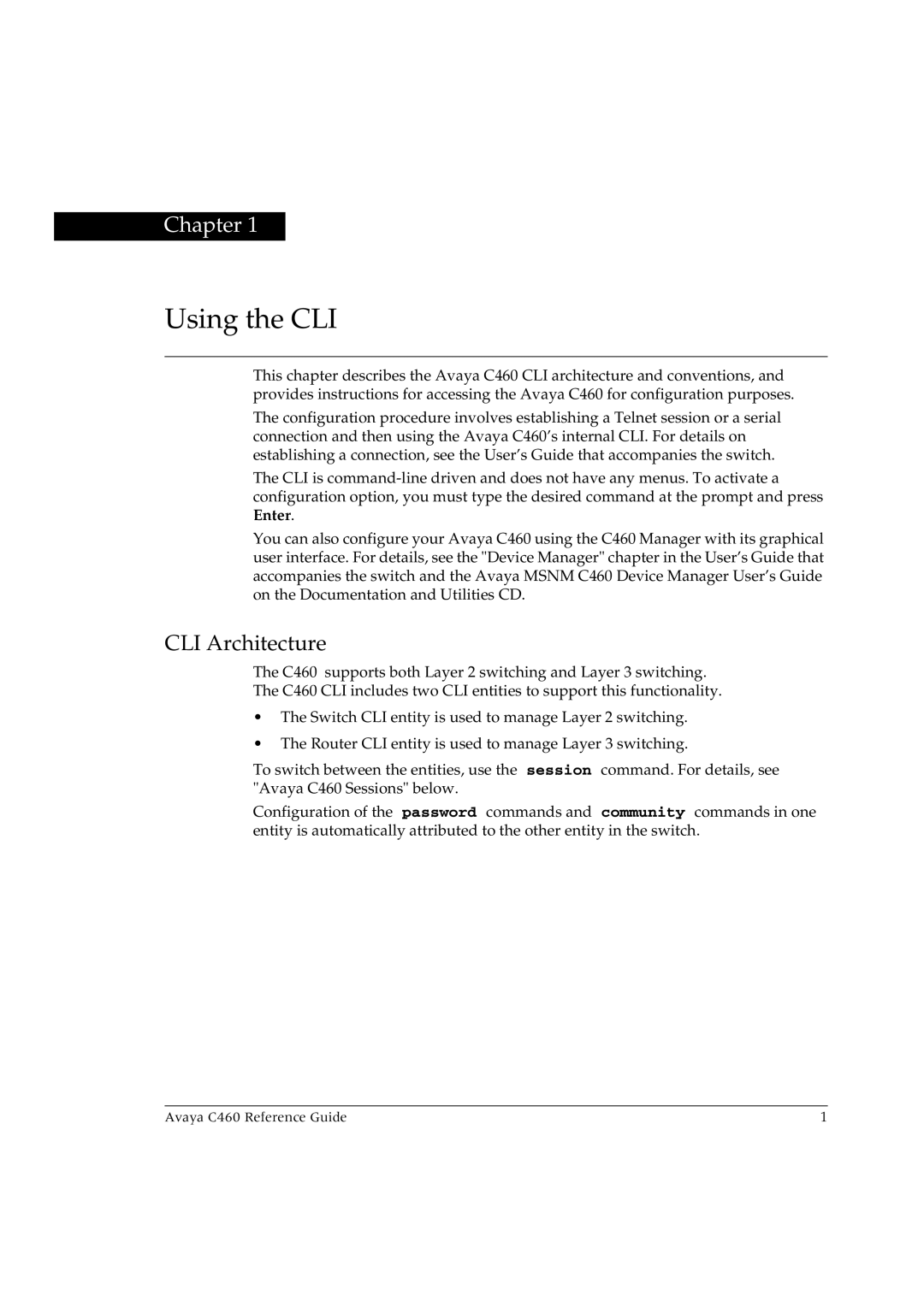
Chapter 1
Using the CLI
This chapter describes the Avaya C460 CLI architecture and conventions, and provides instructions for accessing the Avaya C460 for configuration purposes.
The configuration procedure involves establishing a Telnet session or a serial connection and then using the Avaya C460’s internal CLI. For details on establishing a connection, see the User’s Guide that accompanies the switch.
The CLI is
You can also configure your Avaya C460 using the C460 Manager with its graphical user interface. For details, see the "Device Manager" chapter in the User’s Guide that accompanies the switch and the Avaya MSNM C460 Device Manager User’s Guide on the Documentation and Utilities CD.
CLI Architecture
The C460 supports both Layer 2 switching and Layer 3 switching.
The C460 CLI includes two CLI entities to support this functionality.
•The Switch CLI entity is used to manage Layer 2 switching.
•The Router CLI entity is used to manage Layer 3 switching.
To switch between the entities, use the session command. For details, see "Avaya C460 Sessions" below.
Configuration of the password commands and community commands in one entity is automatically attributed to the other entity in the switch.
Avaya C460 Reference Guide | 1 |
